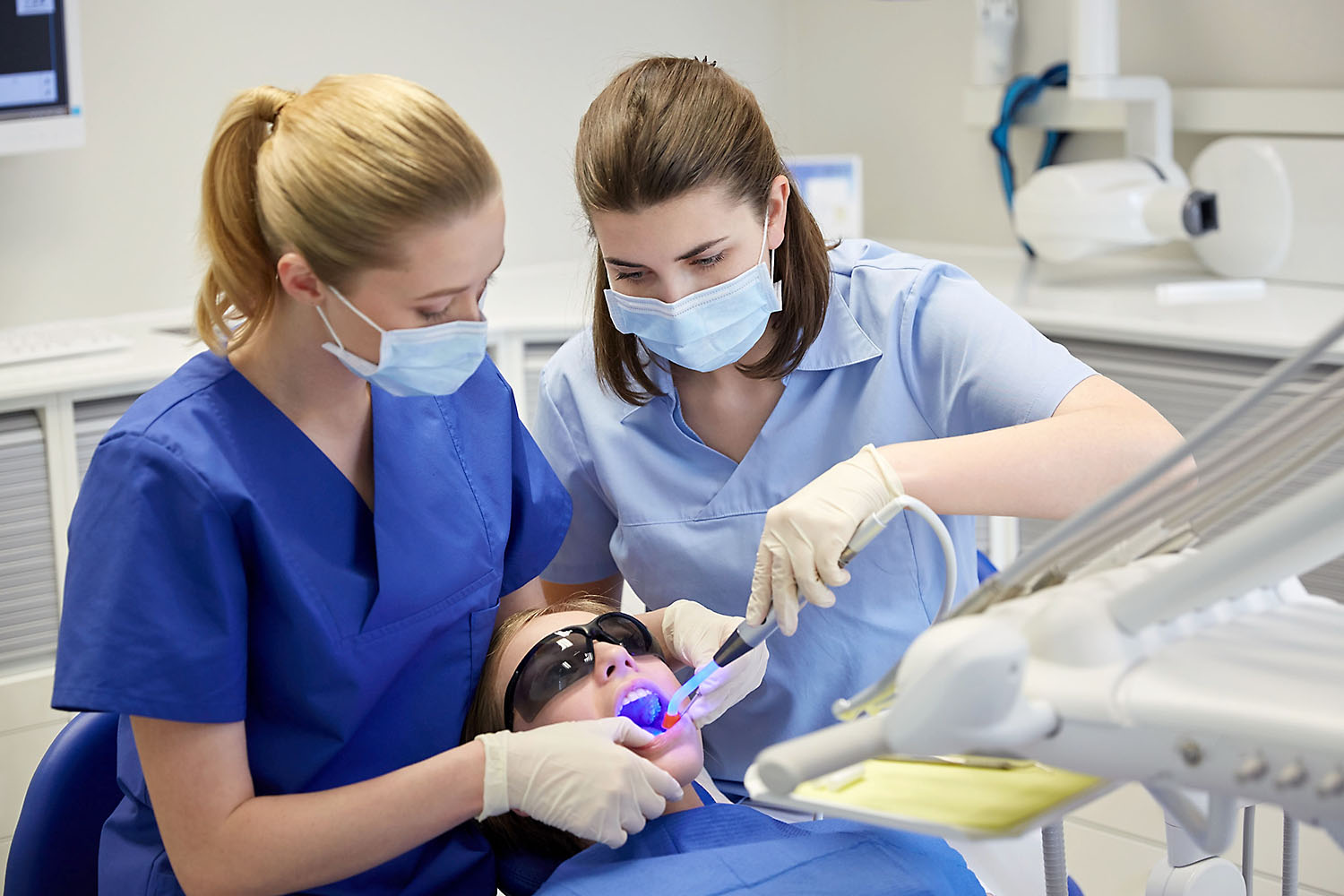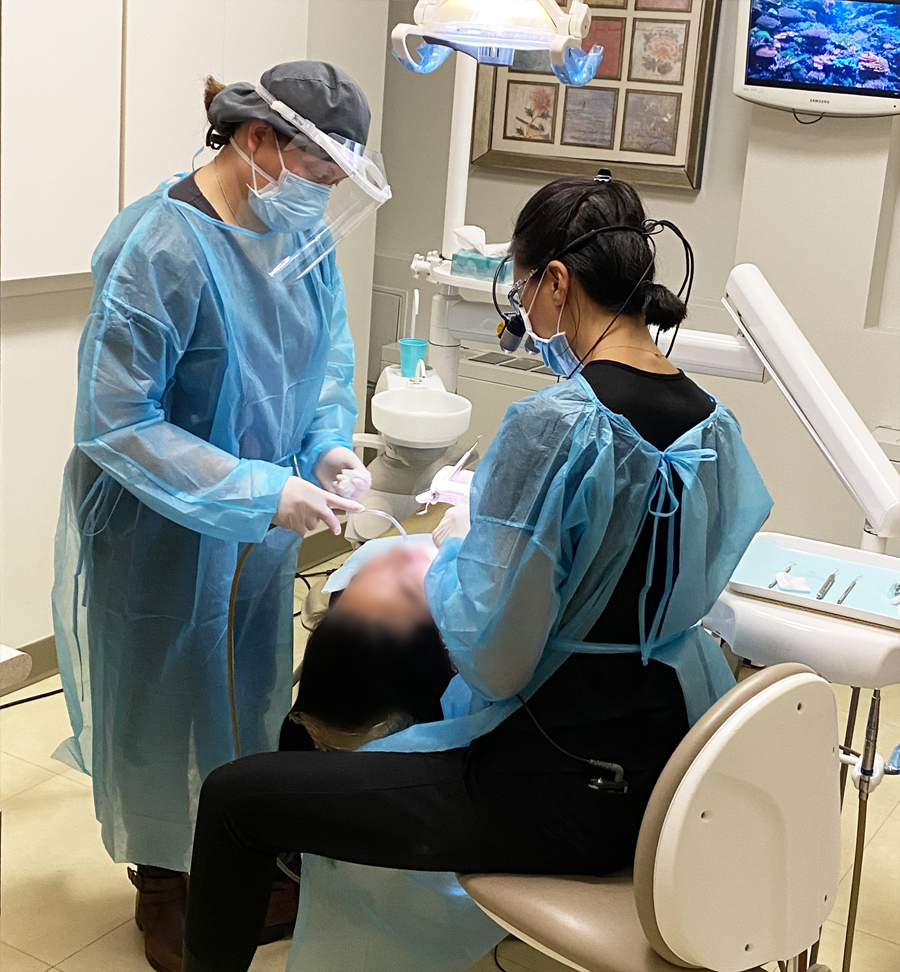An Overview to Typical Dental Conditions That Require a Dental expert's Treatment
Toothaches, for instance, can be symptomatic of severe problems such as cavities, broken teeth, or abscesses, each needing certain interventions like fillings or origin canals. Impacted wisdom teeth and jaw disorders can present considerable discomfort and problems.
Toothaches
Toothaches are a common oral condition that can vary from light pain to serious discomfort, frequently indicating a hidden problem that requires specialist interest. This discomfort can come from a variety of resources, including oral tooth cavities, cracked or fractured teeth, and oral abscesses. Each of these conditions postures considerable risks if left unattended, possibly leading to extra serious difficulties.
Tooth decays, likewise known as caries, are triggered by the buildup of plaque that wears down tooth enamel, leading to holes or pits in the influenced teeth (dentist in eugene oregon). Cracked or fractured teeth, on the other hand, might arise from trauma, grinding, or biting into hard things. These architectural damages can reveal the sensitive inner layers of the tooth, triggering sharp pain and enhancing the risk of infection. Abscesses are uncomfortable infections at the root of a tooth or between a tooth and the gum tissue, normally arising from severe degeneration or without treatment tooth cavities.
Effective therapy of toothaches includes addressing the origin cause. This might consist of fillings for dental caries, crowns for broken teeth, or origin canals and antibiotics for abscesses. Very early intervention by a dental specialist can prevent further deterioration and alleviate discomfort, ensuring ideal dental health.
Gum Condition
Gum illness, a prevalent yet commonly overlooked dental problem, manifests through inflammation and infection of the gum tissues and supporting tissues. This condition largely occurs in 2 phases: gingivitis and periodontitis. Gingivitis, the milder form, offers with signs such as red, puffy gum tissues that may bleed quickly throughout cleaning or flossing. If left untreated, gingivitis can advance to periodontitis, a much more extreme kind identified by the destruction of the supporting bone and connective tissue, eventually bring about missing teeth.
The primary reason for periodontal illness is microbial plaque, a sticky, colorless film that continuously bases on teeth. Poor oral hygiene, smoking, genetic predisposition, and particular clinical problems, such as diabetic issues, can worsen the danger of creating periodontal illness. Regular dental exams are critical for very early detection and monitoring of this problem.
Treatment for gum disease varies from professional dental cleansing and scaling to advanced treatments like root planing and periodontal surgery, depending on the severity. Preserving excellent dental health techniques, including brushing twice daily, flossing, and utilizing an antibacterial mouth wash, can considerably lower the threat of periodontal disease and advertise healthier gums.
Tooth Cavities
Tooth cavities, also referred to as cavities, are a typical dental problem identified by the destruction of tooth enamel as a result of acid-producing bacteria in the mouth. These bacteria prosper on sugars and starches from food and beverages, generating acids that slowly deteriorate the enamel, resulting in cavity development.
Early-stage tooth cavities might disappoint signs and symptoms, however as they progress, they can trigger tooth pain, sensitivity to chilly or warm, visible openings or pits in the teeth, and discoloration. If left neglected, cavities can permeate much deeper layers of the tooth, potentially leading to extreme pain, infection, and even missing teeth.
Preventing dental caries includes a mix of excellent oral health techniques and dietary practices. Normal brushing with fluoride toothpaste, flossing, and regular dental exams are important. Dental professionals might additionally recommend extra precautionary measures, such as fluoride treatments and dental sealers, to shield teeth from degeneration.
Minor dental caries can be resolved with oral fillings, which bring back the tooth's structure. More sophisticated situations may need crowns or even origin canal treatment if the degeneration has actually reached the tooth's pulp.

Impacted Knowledge Teeth
Affected knowledge teeth are a widespread oral issue that takes place when the 3rd molars, generally referred to as knowledge over here teeth, fail to fully arise or straighten correctly within the mouth. This problem usually arises from not enough space in the jaw or an uncommon growth angle of the teeth. Influenced knowledge teeth can cause a selection of difficulties, including pain, damages, and infection to nearby teeth.
When knowledge teeth become affected, they are typically partly appeared or continue to be totally below the gum tissue line. This partial eruption can produce a path for germs to get in the periodontals, resulting in infections that manifest as swelling, discomfort, and even fever. Furthermore, influenced knowledge teeth can exert stress on surrounding teeth, potentially creating crowding or changing.
A thorough dental examination, generally entailing X-rays, is necessary for diagnosing affected wisdom teeth. Therapy often entails medical removal, performed by a dental doctor. The procedure intends to ease pain and stop more complications, such as cysts or damages to surrounding bone frameworks. Post-operative care is crucial to make sure appropriate healing and minimize the danger of infection. Normal oral examinations are recommended to monitor the condition and preserve dental wellness.
Jaw Conditions
Jaw conditions, collectively referred to as temporomandibular joint (TMJ) problems, incorporate a variety of problems that influence the jaw joint and surrounding muscles. These disorders can show up via signs such as pain or tenderness in the jaw, difficulty eating, a clicking or standing out sound when closing the mouth or opening up, and even chronic frustrations. TMJ conditions can emerge from various variables, including arthritis, jaw injury, or habitual actions like teeth grinding or jaw clenching.
Medical diagnosis of TMJ conditions generally entails a thorough examination by a dentist, consisting of a checkup of the jaw, dental X-rays, and sometimes progressed imaging methods like MRI or CT scans to evaluate the joint's condition. Treatment options differ depending upon the extent of the disorder. Non-invasive approaches such as physical therapy, dental splints, and drugs focused on minimizing inflammation and discomfort are frequently first-line treatments. In extra serious situations, surgical interventions may be required to deal with architectural concerns within the joint.
Early intervention by an oral specialist is important to avoid the progression of TMJ conditions and to keep total dental health. People experiencing relentless jaw pain or dysfunction need to look for timely analysis and treatment.
Verdict
Preserving oral health necessitates timely professional like address useful source common dental problems. Toothaches frequently show underlying problems such as dental caries, fractured teeth, or abscesses, requiring timely intervention. Gum tissue disease, from gingivitis to periodontitis, demands routine oral exams and cleanings to avoid progression. Affected wisdom teeth and jaw disorders additionally need specialist focus to ease discomfort and prevent additional problems. Routine oral sees are essential for detecting and dealing with these conditions, making certain general oral health and wellness and health.
Oral tooth cavities, additionally known as decays, are created by the build-up of plaque that erodes tooth enamel, leading to openings or pits in the affected teeth. Abscesses are agonizing infections at the origin of a tooth resource or between the periodontal and a tooth, typically resulting from extreme decay or unattended tooth cavities.

Additionally, affected knowledge teeth can put in stress on surrounding teeth, possibly triggering crowding or moving.
Comments on “What to Anticipate from Your Very First Visit to a Dentist in Eugene Oregon”